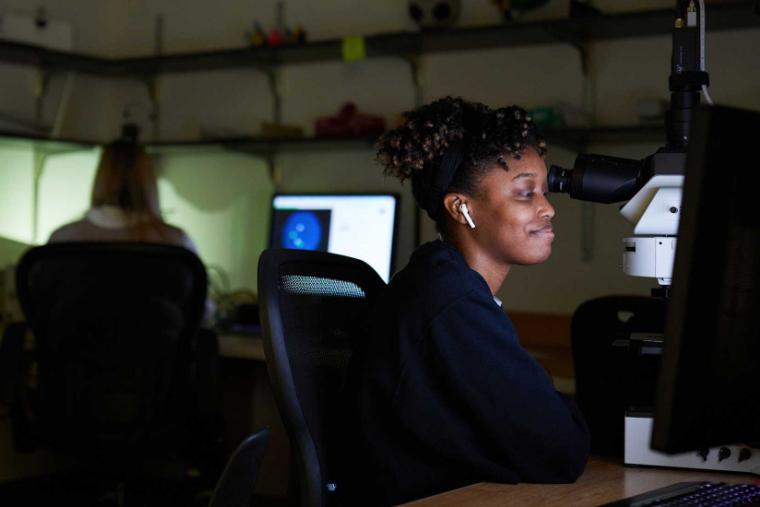As part of its commitment to enhancing diversity, equity and inclusion in STEM, Washington University has established a post-baccalaureate neuroscience training program for students from underrepresented backgrounds. Neuroprep provides two years of paid training in a laboratory to shore up the skills required of PhD programs. Scholars also receive mentorship from peers and faculty, take courses in science and communication, and travel to conferences to present their research.
“The program aligns with WUSTL’s institutional goal of diversifying its faculty, staff and trainees, and demonstrates a commitment to promote representation of individuals who historically have been excluded from biomedical science careers,” said Paul Taghert, PhD, Professor in the Department of Neuroscience and Neuroprep Director.
Washington University has received a $1.4 million grant from the National Institutes of Health to support Neuroprep for four years. The Schools of Medicine and Arts & Sciences are also providing financial support. Applications are open through April 3, 2023, and the inaugural cohort will include five scholars.
Our community will equip Neuroprep students with an accurate roadmap to direct their future careers in the large and expanding world of neuroscience research.
Jose Moron-Concepcion, PhD, Henry E. Mallinckrodt Professor of Anesthesiology and co-Director of Neuroprep
Neuroprep is geared toward bridging gaps in research skills for students wanting to pursue graduate studies in neuroscience, but who didn’t have extensive lab experience as undergrads. In St. Louis, various initiatives offer exposure to neuroscience for students K-12, undergraduate, graduate and beyond. However, there is a gap for formal training in the time time between undergraduate and graduate school for those who lacked opportunity to engage in research activities. That is the educational shortcoming that Neuroprep aims to fill.
Scholars will have the opportunity to join one of 54 laboratories across 15 departments conducting both basic and clinical neuroscience research. They will receive hands-on training in research techniques and analysis, as they pursue a scientific project over the course of the two-year program. They will present their research at events on campus and at national conferences. By the end the program, and with guidance from faculty and near-peer mentors, scholars are expected to have successfully applied to Neuroscience PhD programs.
“The need for a two-year postbaccalaureate program is increasingly recognized as a critical bridge for admission to STEM doctoral training programs,” said Jose Moron-Concepcion, PhD, the Henry E. Mallinckrodt Professor of Anesthesiology and co-Director of Neuroprep. “The broad scope of our neuroscience community, its diversity and scholarly excellence, mirror the strengths and characteristics of modern neuroscience. Our community will equip Neuroprep students with an accurate roadmap to direct their future careers in the large and expanding world of neuroscience research.”
How to support Neuroprep
Neuroprep is grateful to contributions from donors whose support goes to enhance the program and, in future years, may expand to include more scholars. If you are interested in supporting Neuroprep, you can make an online donation or discuss your interests with Emily Williams, Senior Director of Advancement: williams.e@wustl.edu or 315-935-2660.
